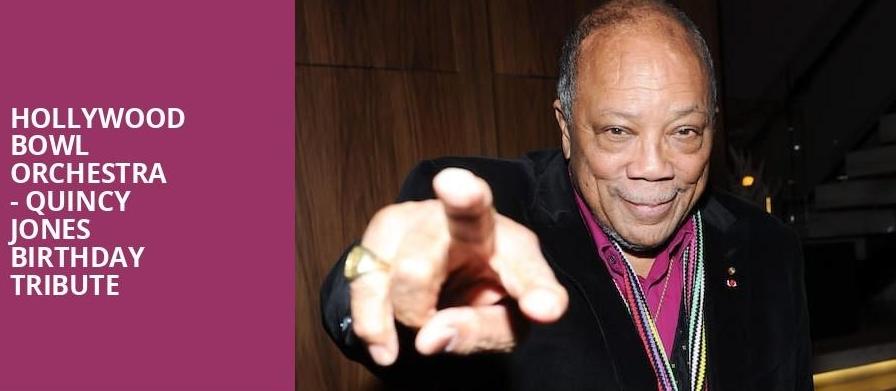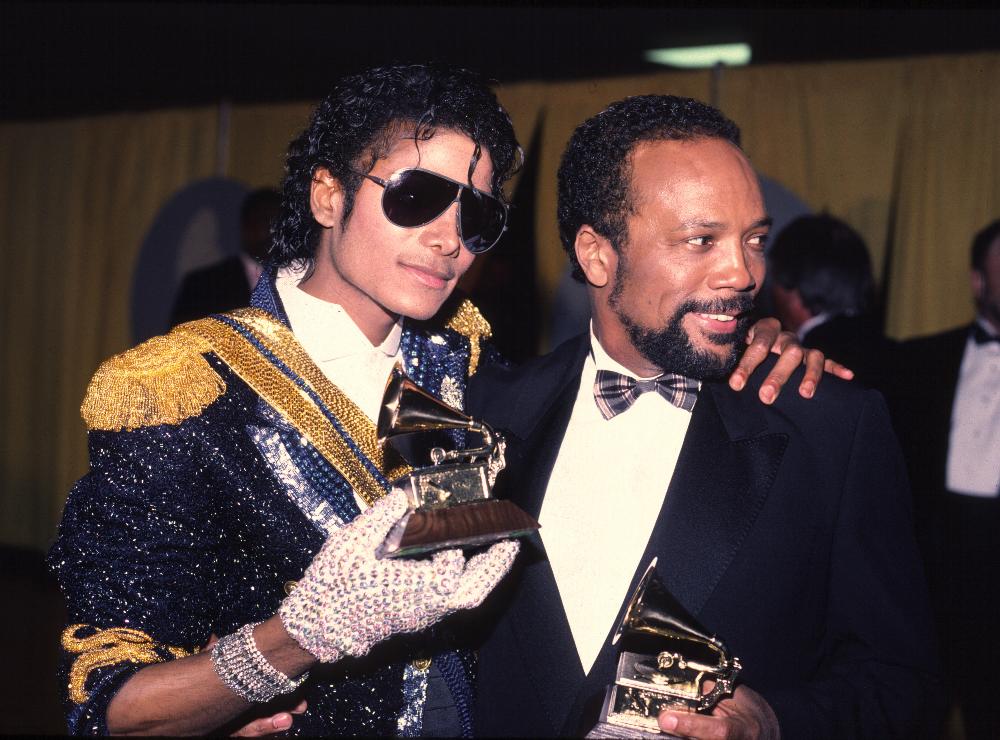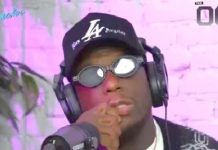
*How does one pay proper tribute in a two-and-a-half hour evening with intermission under the stars at the Hollywood Bowl before thousands of people to an African American Black man who has impacted popular music as a composer, arranger, producer, film scorer, talent scout, tastemaker, record executive and all international icon? You certainly don’t string together his associations with other icons without context nor devote nearly the entire second half to work he produced for a “King of Pop” he worked with for one decade of the seven in which he has been a major player – no matter the multitude of platinum recordings made with that one artist. This undercut full justice to the man of the hour – a man we are all blessed to still have among us on the planet and in this city. And yet that is exactly what was done to Quincy Jones on the first of two nights of tributes slated to honor his 90th birthday at the Hollywood Bowl this weekend as part of the venue’s summer series.
This was not a tribute that failed due to unqualified people on stage. It failed from conception and execution. It failed from generous resources and talent squandered. It failed from pandering to pop denominators. And it failed from a second half being more a tribute to Michael Jackson than to a man who has so much more within his legacy to celebrate.
Not that most of the audience didn’t lap it up as would be expected of the TV song contest generation. But events such as this for living legend icons need to be so much more.
They need to be as succinctly teachable as they are entertaining.
And with someone as distinguished as “Q,” it needs to cover as much ground as possible in a short period of time.
This night’s concert opened with the breezy `60s swing of “Soul Bossa Nova” which gained a new audience when resurrected for the “Austin Powers” spy spoof flicks. It was followed by the ballad “Misty” sung in the Sarah Vaughan style of Samara Joy (nice tenor sax solo by Larry Williams of the Seawind Horns) then the Frank Sinatra staple “Fly Me to The Moon.” But for these conservative picks to be the sole acknowledgments to Jones’ jazz canon is high crime considering all the big band charts and movie scores from which one could choose.
The great Patti Austin did a nice job with the introspective pop movie theme “How Do You Keep the Music Playing” – no complaints here. This led to what I consider to be the two hippest highlights of the evening. First, Patti sang the midnight groover “Betcha Wouldn’t Hurt Me” with its composer taking the stage as a surprise, Mr. Stevie Wonder (though he sounded like he was wrestling with his synthesizer for the first half). Austin then departed the stage as Wonder did what probably he could do best of all the night’s guests which was share the funny story of how he first met “Q” as a child at the Apollo Theater in Harlem. Wonder then slipped seamlessly into his composition “You’ve Got it Bad, Girl” which Jones brilliantly arranged, sang (yes), and recorded as the title track of his 1974 LP for A&M Records. Within this one performance, the true essence of Jones was most completely revealed with the horn and string parts played precisely as Q had written them with composer Wonder himself bluely crooning them in fine voice. Wonder even took a harmonica solo on this number and honored Jones with a melodic quote from his signature jazz hit, “Killer Joe” (from the pen of Benny Golson). Why couldn’t the rest of the night follow such scripting???
John Legend at the piano singing “Just Once” (originally recorded by the late James Ingram on Q’s The Dude LP) and trumpeter Ibrahim Maalouf playing “She’s Out of My Life” (first sung/sobbed by Michael Jackson) were passable if not especially passionate renderings. Shelea put some riffy moves of her own on “You Put a Move On My Heart,” the dynamic Rod Temperton-penned soul pop gem that introduced Tamia to the world stage. Act 1 closed with an ensemble run through The Brothers Johnson’s “Stomp,” a novelty disco song from the sibling duo that Q introduced/produced in the mid-`70s yet an odd choice given how many other far superior songs he did for them including “Strawberry Letter 23” and “Ain’t We Funkin’ Now.” Little did I know how much more disappointment awaited post-intermission?

For the second half of the concert, as I foreshadowed earlier, a full 8 of the 9 songs were dedicated to songs Jones produced on the late great Michael Jackson. Had this been an evening dedicated to “MJ,” this would be appropriate. But even given that Jones’ productions on Jackson – Off the Wall, the all-time best-seller Thriller, and Bad – pop culture watermarks whose creations involved many of the industry’s finest musicians, composers, arrangers and technicians, this was way too much of an overload on Jackson material when more precious time could have been devoted to other Jones-focused masterpieces. Numbers such as “Body Heat,” “If I Ever Lose This Heaven,” “Is it Love That We’re Missing,” “Stuff Like That,” “Ai No Corrida” and so many more that would have really put the orchestra and singers through their paces, and the audience on a time travelling magic carpet ride. The other major issue is that context was rarely given in the introductions of the songs that could have hammered home Q’s genius, especially for younger audience members. I’m not talking lectures here but solid intros of quick solid information and accolades.
Instead, we got members of the vocal ensemble taking turns on Jackson smashes such as “P.Y.T. (Pretty Young Thing),” “Rock with You” and “Don’t Stop `Til You Get Enough” that, again, were proficient but not grand slams. Africa’s Angelique Kidjo threw in some happy feet dancing to her take on “Wanna Be Starting Something” that was ‘cute’ but she could have done more with it vocally as she is highly capable. Avery Wilson also showed he had been watching MJ’s creepy landmark “Thriller” choreography as he performed the song. Most interesting was singer Jacob Collier at the piano with his mother conducting the orchestra on an enchanting arrangement of “Human Nature” with an Asian motif. And Siedah Garrett, one half of the composing team for the anthemic “Man in the Mirror,” brought a soulful earnestness to her offering of the song. Still, a smart, respectful medley of these would have left more time for more Q songs. That would have required a lot more rehearsal and staging, I imagine…)
The concert concluded with Patti Austin, Samara Joy, Jacob Collier, and Jones’ prodigy instrumentalists Alfredo Rodriguez on piano and Ibrahim Maalouf on trumpet having a lackluster go at the Ray Charles house rocker “Let the Good Times Roll” that was too little too late. Stevie Wonder returned to sing his song “Happy Birthday,” capping a night that left some entertained but hardcore admirers such as myself (sporting my sacred Quincy Jones Smackwater Jack t-shirt) woefully underwhelmed if not infuriated.
MORE NEWS ON EURWEB: Quincy Jones on NOT Working with Elvis Presley: ‘He was a Racist Mother —’
We Publish News 24/7. Don’t Miss A Story. Click HERE to SUBSCRIBE to Our Newsletter Now!





